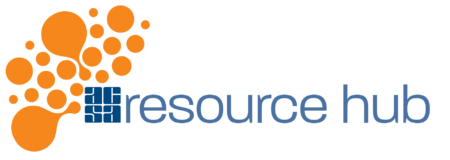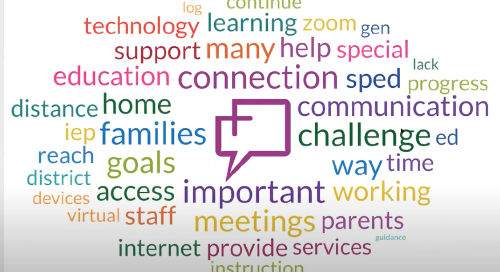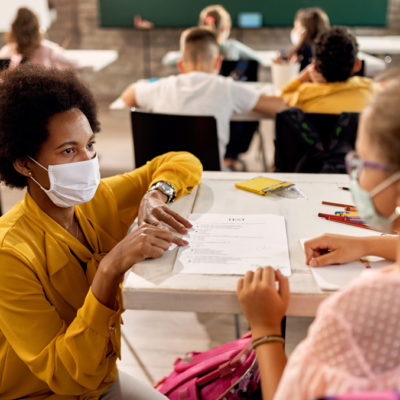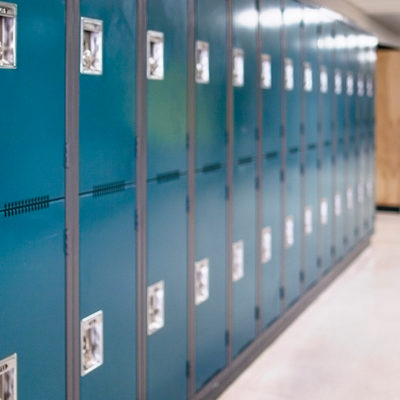Toolkit Contents:
The Work of the Mental Wellness Task Force
Mental Wellness Policy Recommendations

Student academic success often stems from the environment in which the student is conditioned to learn. The safety of students and their learning environment is the top priority for school leaders and educators around the country. Students also need a caring adult in their lives and supportive environment in which to learn.
In the past two decades, school shootings have become too common. Whether the shooting occurs in Colorado, Connecticut, Florida or even recently the shooting in Santa Clarita, students are fearful of the violent acts, which results in trauma. The FBI has defined mass shootings as an event in which four or more victims died by gunfire. Since the 1999 tragedy at Columbine High School, there have been six identified mass shootings and 40 active shooter incidents at elementary, middle, and high schools in the United States.
Our society has also seen an increase in suicides and depression for our youth aged 12 to 25. Recently, a study on health and substance use conducted by the Journal of Abnormal Psychology revealed that the emotional well-being of younger Americans is poorer compared with that of their elders. Of the respondents between the ages of 12 and 25, 13 percent reported symptoms consistent with an episode of major depression. This was a 62 percent increase since 2011.
Further, a report from the Centers for Disease Control and Prevention saw a sharp increase in suicide rates since the beginning of the 21st century. The reports stated that by 2017, young men between 15 and 19 committed suicide at a rate of 17.9 per 100,000, up from 13 per 100,000 in 2000. The suicide rate for this group has not been as high since the HIV/AIDS epidemic of the 1980s.
Another concerning trend is the increasing rate of chronic absenteeism in California which may be partially the result of mental health issues impacting students’ attendance. Data reported by the California Department of Education in 2019 shows a troubling 1.1 percent rate increase in chronic absenteeism, and student mental health may be a contributing factor in the rising rate of students who are missing too much school. Chronic absenteeism is the only major indicator that has not improved over the past three years, and the rate of increase for certain student groups is alarming. One approach to reducing chronic absenteeism rates may be linking youths with high rates of absenteeism and their families to all appropriate school and community mental health resources.
Government studies have examined solutions to solving these ills of our nation’s youth. Last year, ACSA looked at school violence through the prism of how to keep campuses safe and how to prepare for the inevitable senseless and pervasive violence that has plagued schools during the past decade. Through our Fatal School Violence Task Force, ACSA took a proactive role in school safety with the creation of the School Crisis Toolkit. This toolkit leveraged student advocates, federal agencies, thought leaders, and stakeholders to provide resources that save lives.
Building on the Fatal School Violence School Task Force, ACSA Past President Dr. Holly Edds commissioned a discussion and report on the trauma-informed practices necessary to improve mental wellness of students and the adults who care for them on school campuses. President Edds asked Darrien Johnson, Assistant Superintendent for Human Resources for the Berryessa Union School District, to lead this effort.
Chair Johnson lead a group of ACSA practitioners through a series of meetings, interviews and presentations on the best practices around trauma informed practices, and resources. Consequently, our Mental Wellness Task Force was formed to examine causes, tools, supports, and models that can help school leaders throughout California. ACSA hopes that the Taskforce’s work is just the beginning to assisting school leaders and helping our students have healthy and productive lives.
Read More About the Task Force:
The Work of the Mental Wellness Task Force
Mental Wellness Policy Recommendations
Toolkit: Mental wellness resources for educators
As the Mental Wellness Task Force conducted its work, it found numerous resources that would be useful to administrators. Below is an extensive list of resources, including professional development programs, staff trainings and research publications.
CURRICULUM
California Department of Education: Social and Emotional Resources — Access documents and guides produced by the California Department of Education and subscribe to an SEL listserv.
Toolbox Project — Building Resilience, Self-Mastery, and Empathy for Self & Others
Inner Explorer — Series of daily audio-guided mindfulness practices – teaching kids the practical techniques to appropriately handle difficult emotions such as stress, anxiety, anger and more.
Mind Up —The Goldie Hawn Foundation program created in response to the global epidemic of childhood aggression, anxiety, depression and suicide. Based firmly in neuroscience, gives children the knowledge and tools they need to manage stress, regulate emotions and face the challenges of the 21st century with optimism, resilience and compassion.
Second Step — A program rooted in social-emotional learning that helps transform schools into supportive, successful learning environments uniquely equipped to help children thrive.
Social and Emotional Learning Embedded in Core Education Documents — Orange County Department of Education’s SEL resource page.
DATA/RESEARCH
ACSA Publication: Trauma and Teacher Practice — Outlining the need for teachers to participate in the healing process for students recovering from trauma.
ASCD Publications: Making School a Safe Place —Articles from ASCD’s Educational Leadership publication on the theme “Making School a Safe Place.”
CORE Districts — Nationally recognized school improvement and accountability system that uses cooperative efforts to implement new academic standards and improve training for teachers and administrators.
Center for Disease Control: Violence Prevention — CDC Resource on prevention tools and post-trauma tools for violence in communities.
Ed Week Publication — Article from Ed Week, “Teachers Support Social Emotional Learning but Say Students in Distress Strain Their Skills.”
Student Social and Emotional Competence Assessment — This report describes the state of the field of student social and emotional competence assessment and envisions the conditions in which the field can continue to develop in ways that tangibly benefit teaching and learning.
SPEAKER/TRAINING
Kelli Rizzi Director of School and District Support, Shasta County Office of Education — Expert in the area of Trauma Informed Practice and highly engaging presenter on the subject.
Mental Health First Aid — Training resource for community members for Mental Health First Aid
National Center for School Crisis and Bereavement — Confident on-site and remote technical assistance and consultation for K-12 school leadership and school professionals dealing with trauma and grief
Resilience Strategies for Educators: Techniques for Self-Care and Peer Support (RSE) — a one-day Training designed to assist caregivers in schools and school districts to better understand resilience strategies following natural disasters and other emergency events
UNIVERSAL SCREENING
Adverse Childhood Experiences (ACEs) Quiz — Quick survey provided by NPR for Adverse Childhood Experiences as a self-evaluation.
MISCELLANEOUS (multiple categories)
California Department of Education: Child Welfare & Attendance – Resources for student support personnel for addressing chronic absenteeism with publications and toolkits for identifying and linking youths with attendance problems to all appropriate school and community resources.
Collaborative for Academic, Social, and Emotional Learning (CASEL) — Through research, practice, and policy, we collaborate with thought leaders to equip educators and policymakers with the knowledge and resources to advance social and emotional learning in equitable learning environments so all students can thrive.
Devereux Student Strengths Assessment (DESSA) — DESSA-mini, a universal screener, provides a reliable and accurate snapshot of student’s social-emotional competence. In just a minute or so results provide a colored-coded score used to identify students who need Tier II or Tier III supports. DESSA also has a massive library of tools, curriculum, and resources based on scores.
Gaggle — Gaggle’s Student Safety Solution analyzes and reviews the use of online tools and alert the school of potential suicides, self-harm and school threats.
Lions Quest — Providing schools, communities with the ability to help educate, nurture and empower our youth. Speaking to the needs of our community, as well as designed provide high quality social emotional learning experiences for students.
Mindful Education — A certified professional and personal developmental course focused on mindfulness and social emotional learning in the classroom. For your personal development we have 12 audio mindfulness practices and a mindful movement video that you can download and utilize as a progressive training. . You can also tune in to monthly webinars to continue learning from experts and to ask questions about integrating these lessons.
Mindful Schools — Mindful Schools utilizes mindfulness to provide young people with a compass to navigate their lives. Through integrating mindfulness into everyday learning environments of K-12 classrooms, Mindful Schools has trained over 50,000 educators, parents, and mental health professionals who work with youth.
Tici’ess – Tici’ess provides leadership development through emotional intelligence competencies, racial healing, trauma-responsiveness, SEL (Social Emotional Learning), and family engagement to leaders and teachers. The work is led by Tovi Scruggs-Hussein, an award-winning urban high school principal with over 25 years of emotional intelligence training.
Panorama Education — Panorama Student Success provides a complete picture of every student’s academic, attendance, behavior, and social-emotional learning (SEL) progress in school.
Ed Week article — “Teachers Support Social Emotional Learning but Say Students in Distress Strain Their Skills”
Social, Emotional, and Ethical (SEE) Learning — An innovative K-12 education program developed by Emory University, a free online social and emotional curriculum for K-8 (9-12 is in development) with lessons for teachers, professional development online.
Ghandi 150 — Promoting nonviolence in education by organizing a 90-minute event at educational institutions. Join 1,000 Schools, Colleges and Universities across the United States pledging for peace & nonviolence on the momentous occasion of Mahatma Gandhi’s 150th birth anniversary.










Leave a Comment